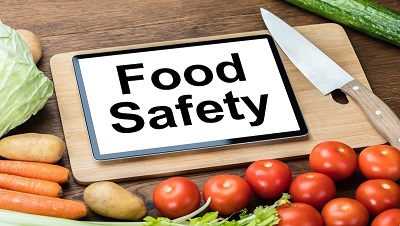Context-
World Food Safety Day 2024 highlights the critical need for preparedness in managing food safety incidents, which can range from minor to severe. These incidents pose potential or confirmed health risks and can result from accidents, inadequate controls, food fraud, or natural events. Ensuring food safety is a shared responsibility among policymakers, authorities, farmers, food business operators, and consumers.
The Overlooked Importance of Food Safety
Food safety, security, sustainability, and nutrition are deeply interconnected, but food safety is often overlooked. Even in countries with high food security, resources are sometimes disproportionately allocated to ensure the safety of exported products, undermining domestic food safety. Vulnerable and food-insecure populations are particularly affected, facing acute and chronic health risks, including diarrheal diseases and exposure to carcinogenic aflatoxins. These issues exacerbate health problems and lead to significant social and economic costs, such as lost income and market access.
The Evolving Global Context
The evolving global context, with rising food demand and new food production technologies, necessitates a robust commitment to strengthening national food control systems and preventive measures throughout the food chain. Achieving the Sustainable Development Goals (SDGs) including eradicating hunger and poverty, access to clean water, sustainable land use, responsible production, and consumption of food commodities, mitigating climate change, and ensuring a sustainable life on land and water, requires novel solutions without compromising food safety. This article discusses ‘NourishNet’, an integrative framework strengthening food safety measures within modern food systems that encompass food security and sustainability as well.
Global Challenges Interlinking Food Security, Safety, and Sustainability
- Rising Food Demand : As buying power rises and living conditions improve in developing countries, meat, dairy, and specialty foods like fruits and nuts are in demand. Additionally, consumers in developed countries show a growing preference for organic, fair-trade, or locally sourced products. Plant-based alternatives have also gained popularity in recent times.
- Environmental Pressure : Food safety and sustainable food production have been challenged by this surge in food demand, which has brought significant pressure on natural resources. These challenges include soil erosion, loss of biodiversity, and environmental pollution. Further, disasters and epidemics pose substantial threats to food safety and security. In the wake of natural disasters such as fires and floods, contaminants such as pathogens, chemicals, and heavy metals can infiltrate the air, water, and environments where food is produced.
- Transboundary Diseases : As trade and travel have become more globalized, concerns about transboundary diseases, which are highly contagious and result in significant animal death and morbidity, have increased. Food costs and availability are significantly affected by these outbreaks, which are economically devastating for farmers. Moreover, some of these diseases may be zoonotic, posing a public health risk.
An Integrative Food Safety Framework for the Future
- The One Health Concept : The concept of 'One Health' was put forth by Sara Garcia and colleagues in 2020 as a way to improve the health, well-being, and sustainability of humans, animals, and the environment. By concept, One Health seeks to balance and optimize health for humans, animals, and the environment. It is especially important to prevent, predict, detect, and respond to global health threats such as COVID-19.
- Multidisciplinary Collaboration : As with any One Health programme, Garcia and colleagues say a multidisciplinary team must work together to make sure humans, animals, and the environment have good health and well-being. For sustainable agricultural practices to be implemented, experts from academic, government, public, and private institutions must be brought together to achieve meaningful change in public awareness, policies, and practices.
- NourishNet Framework : Following One Health, NourishNet is centered on creating sustainable, safe, and secure food systems. The framework encompasses a broader range of food-related issues beyond health threats, including food production, distribution, consumption, and waste management. It aims to address challenges posed by rising food demand, changing agricultural systems, and technological advancements.
The Four Pillars of NourishNet
- Prevention : Implement stringent hygiene practices, regular inspections, and adhere to safety regulations to prevent contamination and foodborne illnesses throughout the food supply chain. Educate and train farmers, handlers, and operators on best practices and emerging risks. Use advanced technologies like blockchain, AI, and IoT for tracking, early risk detection, and timely interventions.
- Protection : Conduct regular risk assessments to identify and address potential hazards in the food supply chain. Establish emergency response systems, including alert networks and crisis communication plans. Educate consumers on safe food handling practices through campaigns and outreach programs to promote overall food safety.
- Participation : Promote collaboration among governments, organizations, the private sector, and civil society to develop comprehensive food safety strategies. Engage local communities in food safety initiatives to foster a culture of responsibility. Ensure transparency and accountability in food safety practices to maintain trust and compliance.
- Policy : Harmonize international food safety standards to facilitate global trade and ensure safety. Integrate food safety with sustainability efforts to conserve resources, protect the environment, and reduce waste. Continuously monitor and evaluate food safety policies to maintain effectiveness and adaptability in addressing emerging challenges.
Conclusion
World Food Safety Day 2024 emphasizes the need for preparedness in managing food safety incidents, highlighting the critical role of integrated frameworks like NourishNet. By encompassing prevention, protection, participation, and policy, NourishNet addresses the interconnected challenges of food safety, security, and sustainability. This holistic approach ensures rigorous standards, continuous education, advanced technologies, robust emergency systems, community engagement, stakeholder collaboration, transparent practices, and sustainable policies. In doing so, NourishNet aims to create a resilient food system capable of meeting rising global food demands while safeguarding public health and the environment, ultimately supporting the achievement of the Sustainable Development Goals (SDGs).
|
Probable Questions for UPSC Mains Exam-
|
Source- ORF







